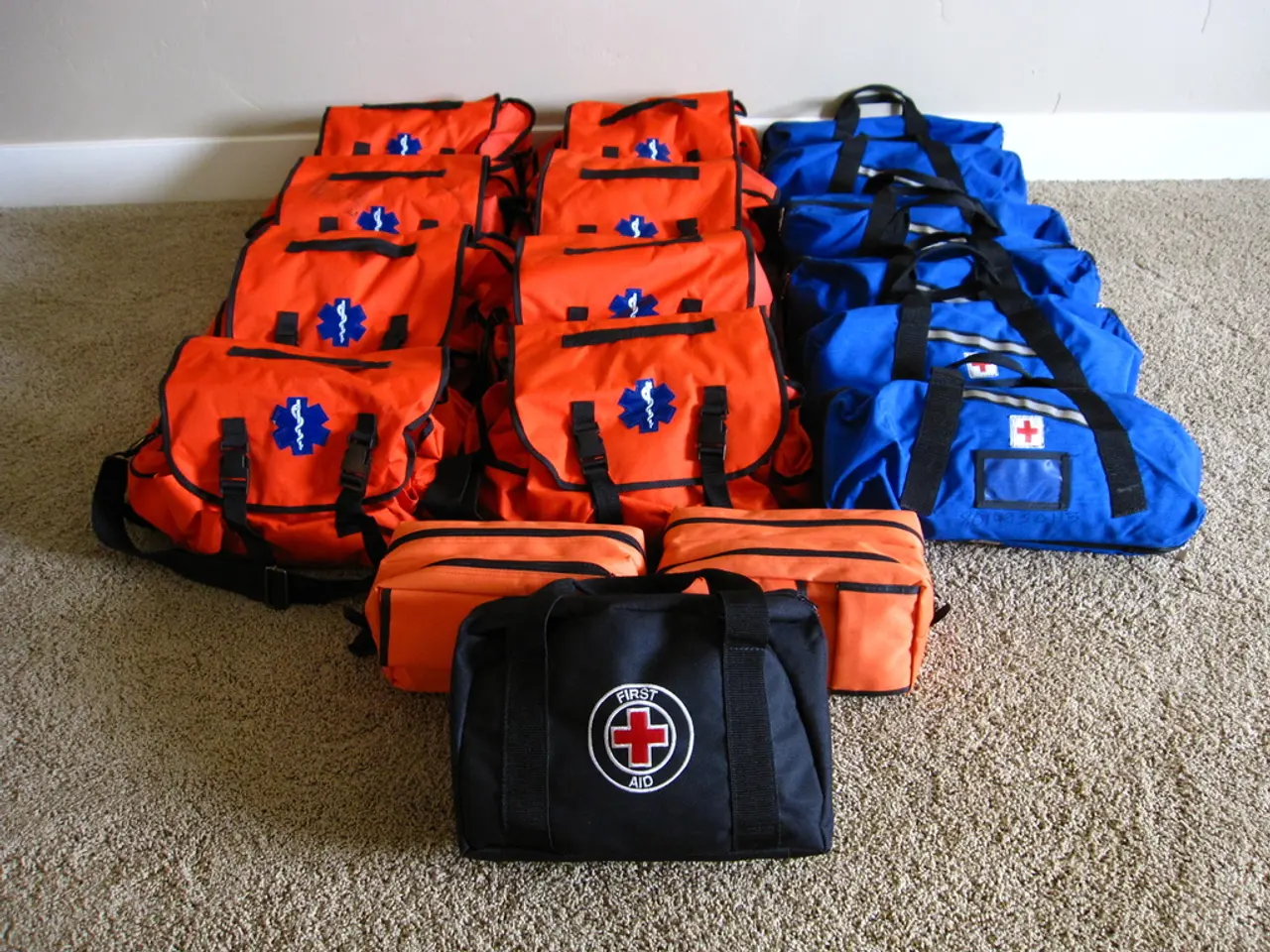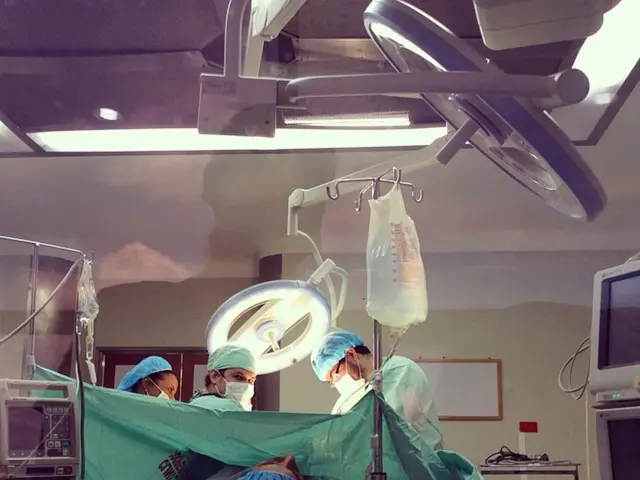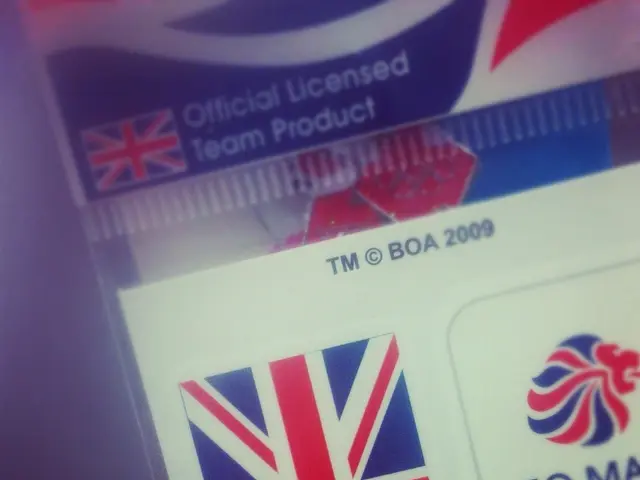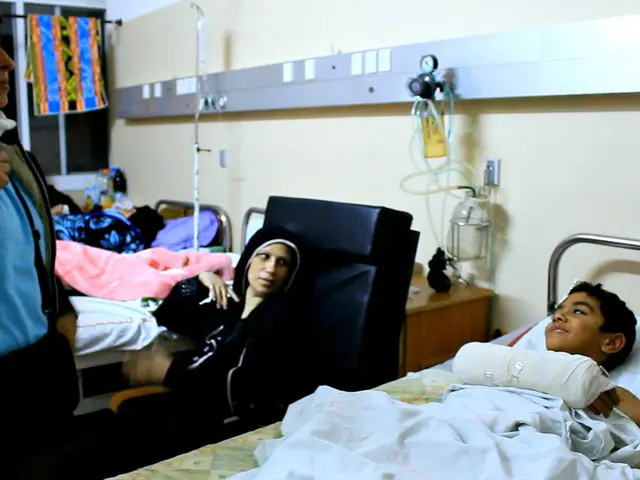Unveiling the Lesser-Known Trick in the Healthcare Sector for Reducing Your Medical Expenses
In the state of New York, while there is no standardized, statewide charity care program for medical bill assistance, many hospitals and specialized non-profit organizations offer financial assistance to eligible patients. Here's a breakdown of the application process and eligibility requirements for those seeking charity care in the Empire State.
## Application Process
Most hospitals in New York have their own financial assistance or charity care policies. To access these programs, patients must contact the hospital where they received care directly to request information about available programs and to obtain the necessary application forms. Applicants are generally required to submit proof of income, household size, insurance status, and details about the medical bill. Supporting documents may include pay stubs, tax returns, bank statements, and a copy of the medical bill.
After submitting a complete application, the hospital reviews the information to determine eligibility for charity care or a reduced bill. The review timeline can vary but may take several weeks to months, depending on the hospital’s process. Some patients find it helpful to use advocacy organizations, such as Dollar For, which assist in filling out forms, gathering documents, and submitting applications to the hospital on the patient’s behalf.
Certain 501(c)(3) organizations, like the New York Cancer Foundation, offer grants for non-medical expenses (e.g., transportation) to qualifying patients undergoing cancer treatment in New York. These require a separate application, supporting documentation, and board approval.
## Eligibility Requirements
Most hospitals base eligibility on household income relative to the Federal Poverty Level (FPL). Full charity care (100% discount) is often available to those at 0–200% of the FPL; partial discounts may be available up to 400% of the FPL, depending on the hospital’s policy. Patients typically must demonstrate they do not qualify for Medicaid, Medicare, or other government assistance programs, and that they are unable to pay their bill. Charity care generally applies to non-elective (medically necessary) services, not elective or cosmetic procedures.
Applicants must provide proof of income, residency, and the medical services received. Incomplete documentation can delay or prevent approval. Some hospitals may have additional criteria, such as consideration of high medical costs relative to income or more lenient income thresholds in certain cases.
## Key Recommendations
- Start by calling the hospital’s billing or patient financial services department to request information on their charity care policy and application process. - Prepare all required financial and medical documents before applying to avoid delays. - Consider reaching out to patient advocacy organizations if the process seems overwhelming or if you encounter barriers.
While the process reflects general practices in New York, specifics can vary by hospital. Always confirm details with the facility where care was received.
In recent years, New York's law governing charity care has strengthened, with changes including expanded eligibility and a requirement that hospitals use a standardized form. The state has also taken steps to address medical debt, such as teaming up with Undue Medical Debt to eliminate $2 billion in medical debt for New York City residents using $18 million in city funds. As of 2023, a state law in New York prohibits health care providers from reporting medical debt to credit agencies.
Organizations like Dollar For continue to play a crucial role in helping patients access charity care programs nationwide. Since 2021, Dollar For has helped eliminate almost $93 million in medical debt for patients across the U.S., including over $2 million for nearly 300 New Yorkers. As the need for financial assistance in healthcare continues to grow, it's clear that initiatives like these are essential in bridging the gap for those in need.
- In New York, hospitals and certain non-profit organizations offer financial assistance to eligible patients, including those with medical-conditions, through charity care policies.
- To access these programs, applicants must contact the hospital where they received care and request information about available programs, and obtain the necessary application forms.
- Eligibility for charity care is often based on household income relative to the Federal Poverty Level (FPL) and applicants' inability to pay their bills.
- The New York Cancer Foundation, a 501(c)(3) organization, offers grants for non-medical expenses to qualifying patients undergoing cancer treatment in New York.
- Organizations like Dollar For help patients access charity care programs nationwide, including New York, by providing assistance in filling out forms, gathering documents, and submitting applications to hospitals.
- New York's law governing charity care has strengthened in recent years, with changes including expanded eligibility, a requirement for standardized application forms, and steps to address medical debt.
- Initiatives like Dollar For are essential in bridging the gap for those in need, as the need for financial assistance in healthcare continues to grow.




